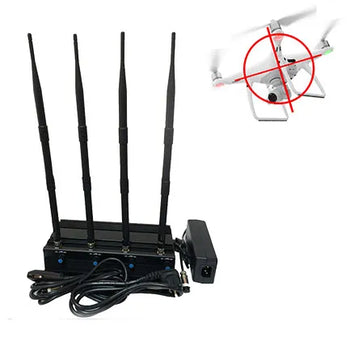Cell phones in prisons: why are they still there?
Prisons are full of cell phones, allowing inmates to pursue a life of crime unhindered by locked doors and barbed wire. Why isn't technology used to stop them?
Thousands of mobile phones are confiscated in UK prisons each year and many more - smuggled in or thrown over the wall - go undetected.
They are a valuable illegal resource - costing between £400 and £1,000 just to borrow.
The government's National Offender Management Service (NOMS) seized 7,451 mobile phones and SIM cards from prisons in England and Wales in 2013.
Using them, inmates had "ordered murder, planned escapes, imported automatic firearms and organized drug imports", NOMS said.
"The problem is widespread."
Machine guns were smuggled into the UK by a prisoner organizing the crime over the phone from his cell.
Judge David Farrell QC called the 'totally inadequate' prison security which enabled the crime a 'scandal'.
The inmates ran a cocaine ring, staged the murder of a teenage boy as part of a feud, and staged the murder of a gang leader - all from their jail cell.
The mother of an inmate at HMP Northumberland claims 'the place is full of cell phones'.
“There are people throwing cell phones over the fences and then there are prisoners who have access to the grounds so they bring them in,” she says.
Glyn Travis of the Prison Officers' Association (POA) says the prison is far from unique.
"Drugs and cellphones are freely thrown into prisons" with drone delivery "completely undermining the external security that protects the public," he says.
Sodexo, which runs HMP Northumberland, said "staff have worked hard to prevent illicit items from entering the prison using a range of technical and intelligence measures".
But the fact that so many phones enter prisons despite security precautions partly explains how difficult it is to find and remove them.
The obvious solution, says the POA, is to render them unusable.
Cell phone jammer or clamps - which block signals or divert them from their intended destination - are readily available.
Four ways to cut communications
Jamming/blocking: A signal is transmitted to prevent the handset from receiving the signal from its base station. All phones and Sim cards within range of the jammer will be blocked, including those belonging to prison staff. The method is inexpensive and above all effective. Interference caused outside the prison can, with care, be avoided, but it can increase the cost.
Seize: Phones are lured into a fake network. It is selective - nearby staff or resident phones can be 'whitelisted' unassigned. Success can be quantified - phones and their owners can be identified. Illegal phones can be monitored rather than blocked. It is more expensive than cover jamming.
Disconnecting Operators: The Serious Crimes Act 2015 introduced the power to compel mobile operators to disconnect illicit phones. So far, the relevant regulations have not been adopted. Disconnected phones and SIM cards may need to be replaced and mobile operators may be unwilling to cooperate.
Stop and search: Visitors and staff may be searched for illicit phones. Cells and inmates can be searched to find missed ones. Sniffer dogs can be trained to find cell phones. Some phones will escape detection and new ones may be brought in to replace confiscated ones.
But NOMS says the expenditure is "disproportionate", to the tune of £300million for installation and £800,000 a year for maintenance.

However, tech installers, like Howard Melamed of US-based Cell Antenna, have been downplaying the cost of technology for years.
Steve Rogers, managing director of electronic countermeasures company Digital RF, says the wide variety of UK prisons - large, small, new build, Victorian, open and high security - makes pricing "very difficult". .
"How do you like that, that's the question, isn't it?" Said Mr. Rogers.
"When you calculate that value, you can tell whether it's affordable or not."
The Crime and Safety Act 2010 made possession of a mobile phone in prison punishable by two years in prison and/or an unlimited fine.
But inmates aren't worried about punishment for crimes committed inside, Travis says.
"I don't know why they should fear the fact that if they are prosecuted - and I use the word if they are prosecuted - by the CPS and the police, then they go to court and they can get a 12 - Concurrent sentence of one month. "
Prisoners at HMP Northumberland know they are not allowed to make telephone calls, but "many of them" still do, says the inmate's mother.
Last year the government awarded a £60,000 contract to explore the use of mobile phones in prisons - how to keep them out, find those who do and disrupt those who cannot be located.
The previous year, the Scottish Prison Service announced plans to trial blocking technology at HMP Shotts and Glenochil.
But NOMS specifically excluded such “prohibitively expensive solutions,” despite a 2012 change to the law allowing their use in prisons.
Then, in 2015, the Serious Crime Act introduced the possibility of regulation giving the government – and ministers in Scotland – the power to force mobile operators to disconnect illicit phones and SIM cards.
Notably, authorities wouldn't need to find the phone to cut it off.
Regulations have yet to be adopted. A prison service spokesman said they would be "introduced in due course".
But SIM cards and disconnected phones are soon being replaced, Rogers says.
And cutting people off is not in the commercial interest of organizations that make money “keeping people on the air.”
“They only have to mess up one or two people and they could find themselves in a rather interesting legal situation,” he says.
The POA has lobbied for signal blockers for years, raising it with MPs and with each successive government.
"Every year they say 'we can't afford it, we'll do a pilot project, we'll do it' and every time they try to do it they say it's too much trouble - absolute rubbish “, Mr. Travis said.
Rogers favors capture technology because prisons can see how many handsets have been disabled and who they belong to.
Blocking can sometimes leave small spots where a signal can pass and its effect is difficult to quantify, he says.
The prisons he works with can only measure success by the number of phones tossed in the trash by inmates unwilling to risk punishment for an illicit item that no longer works.
The Prison Service admits that prisons 'need urgent reform' and it must 'investigate new ways to find and block cellphones and equip guards with the proper tools to deal with it'.
It lists detection equipment, routine searches, CCTV, sniffer dogs and penalties - but is very reticent about its stance on blocking technology.
A spokesman declined to say whether 2012 legislation allowing the use of "signal denying" technology had ever been used.
He also declined to comment on the published pilots or the cost and effectiveness conclusions they reached.
The POA believes blocking or seizing would not only control prisoners, but "would have a significant impact on the general public."
When “people who have committed some of the most heinous crimes” can organize more crimes inside a prison, “how safe are your children?” Mr Travis asks.













